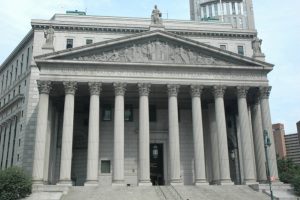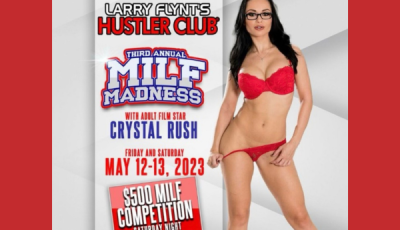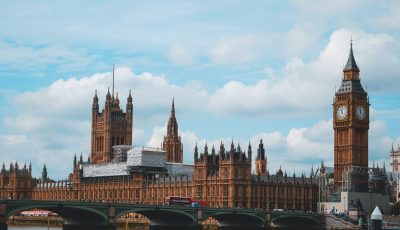Hustler Club Sales Tax Appeal Denied
 NEW YORK – In the latest development in a case which reaches back to 2008, an appeals court in New York upheld a lower court’s decision holding that semi-nude dancing at the Hustler Club in Manhattan is not a type of performance which is exempt the club from paying sales tax.
NEW YORK – In the latest development in a case which reaches back to 2008, an appeals court in New York upheld a lower court’s decision holding that semi-nude dancing at the Hustler Club in Manhattan is not a type of performance which is exempt the club from paying sales tax.
The appellate court found it had no cause to overturn the lower court’s ruling, which held the performances of erotic dancers were not “dramatic art performances,” meaning the club is unable to claim an exemption on that basis from a 4% sales tax.
In her opinion, Justice Christine Clark wrote the club’s attorneys failed to meet content and venue requirements contained in the relevant portion of the statute, §1105 (f)(1) of New York Consolidated Law, and added the club’s “remaining arguments are either unpreserved, rendered academic or lacking in merit.”
Under the relevant portion of the law, the statute states “there shall be paid a tax of four percent upon… (a)ny admission charge where such admission charge is in excess of ten cents to or for the use of any place of amusement in the state, except charges for admission to race tracks or combative sports which charges are taxed under any other law of this state, or dramatic or musical arts performances.”
The case has been bouncing about New York courts since an audit of the club conducted by the New York Department of Taxation and Finance, which inspected Hustler Club returns from June 2006 through November 2008 and found the club owed more than $4.8 million. Despite negotiating the sum down to $2.1 million, the club pushed ahead with an appeal to the New York Division of Tax Appeals on artistic grounds and for other causes.
Administrative Law Judge Donna M. Gardiner was not exactly receptive to Hustler Club’s arguments, writing at the time that the club “provides a service to its patrons that essentially boils down to performers who remove their clothing and create an aura of sexual fantasy.”
“The plain facts of this case have been obfuscated in an attempt to characterize [semi-nude erotic dancing as] live dramatic, choreographed performances,” Gardiner added. “However, the services provided by the entertainers at the Hustler Club is sexual fantasy, not dance.”
In addition to shooting down the club’s artistic arguments, the court found that all “scrip” sales (scrip in this context being an in-house substitute for cash paid for with credit cards) were also taxable income.
“In addition to the 20 percent surcharge imposed on its scrip-purchasing customers, the club charged entertainers and floor hosts a fee to redeem the scrip paid to them by patrons,” the court found. “Specifically, the club collected 10 percent of the face value of scrip redeemed by entertainers and 30 percent of the face value of scrip redeemed by floor hosts. The club recorded the amount paid to it by floor hosts as ‘service fee income.’”
The court found that while some of the scrip may have been used to buy table dances or to tip dancers, the club had failed to definitively establish how much of the scrip sold to customers went towards such payments. Without such an accounting, the appellate court held the lower correct was correct in finding all scrip sales to be taxable.
Unfortunately for Hustler Club, the court didn’t find its other arguments persuasive, either.
“Finally, we are unpersuaded by petitioners’ various constitutional arguments,” the court said, “many of which are, in essence, a repetition of challenges that were previously raised and rejected.”













